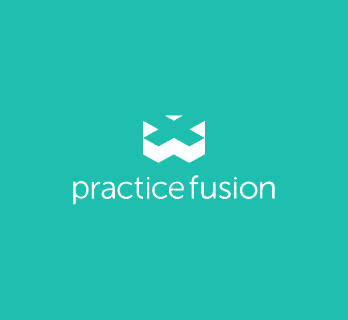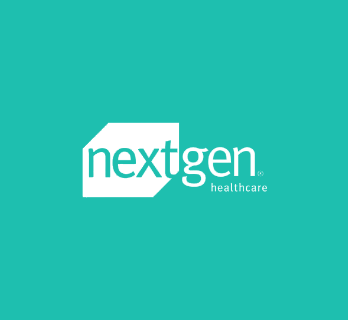Charge Entry Services
CareMSO provides reliable Charge Entry services to help your practice receive compensation from your insurance instantly
What is Charge Entry in Medical Billing?
Simply put, charge entry is the crucial process of entering medical service data and associated fees into a healthcare provider’s billing system. This step is fundamental in the medical billing cycle, bridging the gap between the healthcare services provided and the financial reimbursement process.
In charge entry, every service rendered by a healthcare professional, from a routine check-up to complex surgical procedures, is translated into a standardized medical code. These codes, along with pertinent details like service dates, provider information, and the corresponding charges, are meticulously entered into the billing software
This is where CareMSO‘s billers come in, with in-depth knowledge of medical codes, including CPT, ICD-10, and HCPCS codes, as well as a keen understanding of various insurance plans and regulations. We aim to help you get the reimbursement that your clinic deserves at the best pricing in the country.

Our Charge Entry Process
Our Charge Entry process is meticulous, thorough and extensive to help as many practices and hospitals who need us. Here’s how:
Collection of Service Information
The process begins with our billers collecting all necessary information about the services provided. This includes patient details, service dates, and descriptions of the procedures or consultations performed. In a hospital setting, this information often comes from the Electronic Health Records (EHR) system.
Medical Coding
Once the service details are gathered, they are accurately translated into universally accepted medical codes. This step is crucial as it involves understanding and applying the correctly CPT, ICD-10, and HCPCS codes. These codes communicate the specifics of the patient's visit and are essential for insurance claims.
The Charge Entry
Here, the coded services are assigned appropriate charges based on the provider's fee schedule. It's vital to ensure that the charges align with the coding standards and contractual agreements with insurance payers. Any discrepancy can lead to claim rejections.
Quality Check and Auditing
After the charges are entered, a thorough quality check is done. This step involves reviewing the entered data for accuracy in coding and charging. Our auditing process rectifies any errors before the claims are submitted to the insurance companies for maximum reimbursement.
Benefits Of Outsourcing Charge Entry Services
We at CareMSO have seen firsthand the transformative impact that outsourcing charge entry services can have on a healthcare provider’s operations and financial health. Here are the key benefits:
Enhanced Accuracy and Reduced Errors
Outsourcing to CareMSO means entrusting the charge entry process to experts who are well-versed in medical coding and billing regulations. Our professionals are adept at minimizing errors, ensuring that the charges entered are accurate and compliant with current coding standards.
Increased Efficiency
Medical billing companies streamline the charge entry process using advanced software and technologies. This efficiency translates to faster processing of claims, which in turn leads to quicker reimbursements. For healthcare providers, this means improved cash flow and a healthier bottom line.
Cost-Effectiveness
By outsourcing, healthcare providers can save on the costs associated with maintaining an in-house billing department. This includes savings on employee salaries, training, and benefits, as well as on the infrastructure and technology required for billing operations.
Scalability and Flexibility
Outsourcing charge entry allows healthcare providers, especially solo practitioners, to focus more on patient care rather than getting bogged down by the complexities of billing and coding. This shift in focus can lead to improved patient satisfaction and outcomes.
Staying Up-to-date with Industry Changes
The field of medical billing is constantly evolving with new codes, regulations, and payer policies. CareMSO stay abreast of these changes, ensuring that charge entry and the overall billing process remain compliant.
Access to Expertise and Support
Outsourcing provides healthcare providers with access to a pool of experts who can offer guidance and support on various billing issues. This expertise is particularly beneficial in navigating complex billing scenarios and resolving disputes with insurance companies.








Common Charge Entry Issues We Help With
With years in the medical billing industry, we’ve helped countless practices and hospitals deal with common Charge Entry based issues. Our strategies have been designed to reduce these issues.
The ever-evolving nature of medical coding, with frequent updates to ICD-10, CPT, and HCPCS codes, poses a significant challenge. To overcome this, continuous training and education are essential. Staying informed about the latest coding updates and guidelines ensures accuracy in charge entry.
Different insurance payers have varied billing requirements and policies. Mishandling these can lead to claim denials. The solution lies in maintaining a comprehensive and updated database of payer-specific rules and ensuring that the charge entry team is well-versed in these nuances.
Minor mistakes in data entry can have major repercussions. Implementing a robust quality control process is crucial. This involves routine audits and double-checks of the entered data to catch and correct errors before claims submission.


The reliance on billing software and technology can lead to issues, especially if the systems are outdated or not user-friendly. Investing in modern, intuitive billing software and providing adequate training to the staff can mitigate this challenge.
The pressure to process a high volume of charges quickly can sometimes compromise accuracy. To address this, it’s important to establish realistic productivity targets and create an environment that prioritizes accuracy over speed.
Charge entry involves dealing with sensitive patient information. Ensuring compliance with HIPAA and other privacy laws is paramount. Regular training in data privacy and security practices is essential to safeguard patient information.
Simplify Billing, Maximize Revenue
Fill in the Form and We’ll Give you a Call with a Quote


